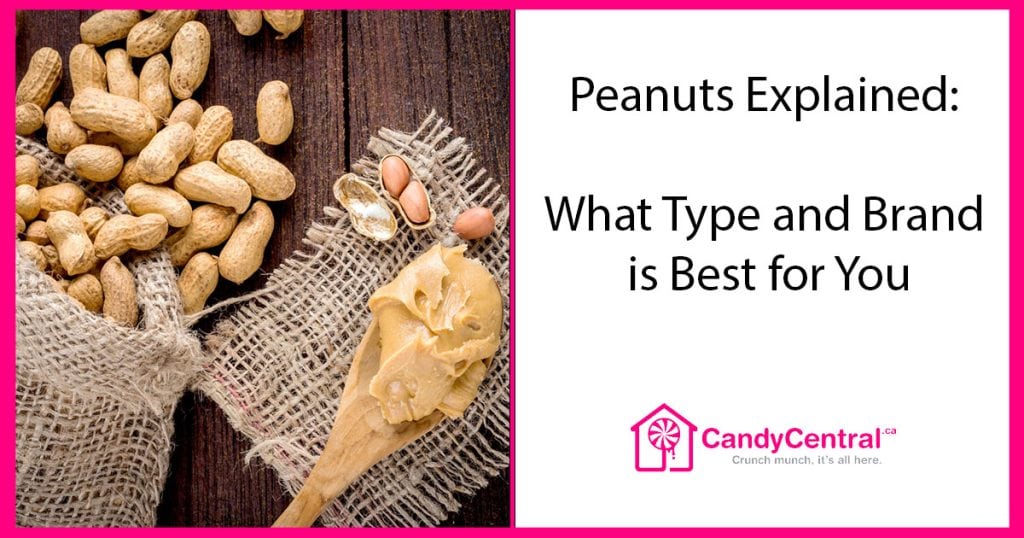Peanuts Explained: What Type and Brand is Best for You
Introduction to Peanuts
Ah, peanuts! Who doesn’t love munching on these delicious, protein-packed nuts? But did you know that there are different types and brands of peanuts available? It’s true! In this article, we’ll discuss the various types of peanuts, their health benefits, and the best brands to choose from. So, let’s get cracking!
Types of Peanuts
There are four main types of peanuts: Runner, Virginia, Spanish, and Valencia. Each type has its own unique characteristics, so let’s dive in and explore them.
Runner Peanuts
Runner peanuts are the most common type and are typically used for peanut butter. They’re uniform in size, have a mild flavor, and account for about 80% of US peanut production.
Virginia Peanuts
Virginia peanuts are the largest and often considered the tastiest. They’re used for snacking, in gourmet products, and sometimes for peanut butter. Virginia peanuts have a rich, buttery flavor and a satisfying crunch.
Spanish Peanuts
Spanish peanuts are known for their distinctive red skin and smaller size. They’re used in candies, mixed nuts, and peanut butter. Spanish peanuts have a robust, nutty flavor and higher oil content, making them perfect for roasting.
Valencia Peanuts
Valencia peanuts are the smallest and sweetest of the four types. They’re primarily grown in New Mexico and are commonly used for all-natural peanut butter. Valencia peanuts have a delicate, sweet flavor that’s hard to resist.
Health Benefits of Peanuts
Not only are peanuts tasty, but they’re also packed with health benefits.
Nutrient Profile
Peanuts are rich in protein, healthy fats, fiber, vitamins, and minerals. They contain vitamin E, B-complex vitamins, magnesium, and potassium, which all contribute to a healthy diet.
Heart Health
Research shows that peanuts can help improve heart health by lowering LDL (bad) cholesterol and increasing HDL (good) cholesterol levels.
Weight Management
Peanuts can help with weight management because they’re filling and nutrient-dense, making them a great snack option to curb hunger.
Top Brands of Peanuts
Now that we’ve covered the types and health benefits, let’s explore some top brands to consider.
Planters
Planters is a well-known brand that offers a wide variety of peanuts, including honey roasted, salted, and unsalted options.
Hampton Farms
Hampton Farms is a family-owned company that produces all-natural, in-shell peanuts. Their peanuts are non-GMO
and gluten-free, making them a great choice for those with dietary restrictions.
Wonderful Pistachios & Almonds
While best known for their pistachios and almonds, Wonderful also offers delicious and high-quality peanuts. Their flavors include salted, unsalted, and sweet chili, giving you some unique options to try.
Choosing the Right Type and Brand for You
Now that we’ve covered the top brands, let’s discuss how to choose the right type and brand for you.
Taste Preferences
If you prefer a mild and versatile flavor, Runner peanuts might be your best bet. For a richer, buttery taste, give Virginia peanuts a try. Spanish peanuts are perfect for those who enjoy a robust, nutty flavor, while Valencia peanuts offer a sweet and delicate taste.
Dietary Considerations
For individuals with specific dietary needs, make sure to check the label for information on allergens, GMOs, and gluten. Some brands, like Hampton Farms, cater specifically to those with dietary restrictions.
Conclusion
In conclusion, there are various types and brands of peanuts out there, each with unique flavors and characteristics. By understanding the differences, you can make an informed decision about which type and brand best suit your taste buds and dietary needs. So, go ahead and enjoy your peanuts, knowing you’ve made the best choice for you!
FAQs
Q1: Are peanuts a good source of protein?
A1: Yes, peanuts are an excellent source of plant-based protein. They contain about 25 grams of protein per 100 grams.
Q2: Are peanuts safe for people with nut allergies?
A2: Peanuts are technically a legume, not a tree nut. However, some people with tree nut allergies might also be allergic to peanuts. Always consult a medical professional if you have concerns about allergies.
Q3: Can I eat peanuts if I’m on a low-carb or keto diet?
A3: Peanuts can be enjoyed in moderation on a low-carb or keto diet, as they contain about 16 grams of carbs per 100 grams, with 8 grams being fiber.
Q4: Are peanuts gluten-free?
A4: Yes, peanuts are naturally gluten-free. However, always check the label, as some brands may process their peanuts in facilities that also process gluten-containing products.
Q5: How should I store my peanuts?
A5: To maintain freshness, store peanuts in an airtight container in a cool, dry place, away from direct sunlight. For longer storage, consider keeping them in the refrigerator or freezer.

